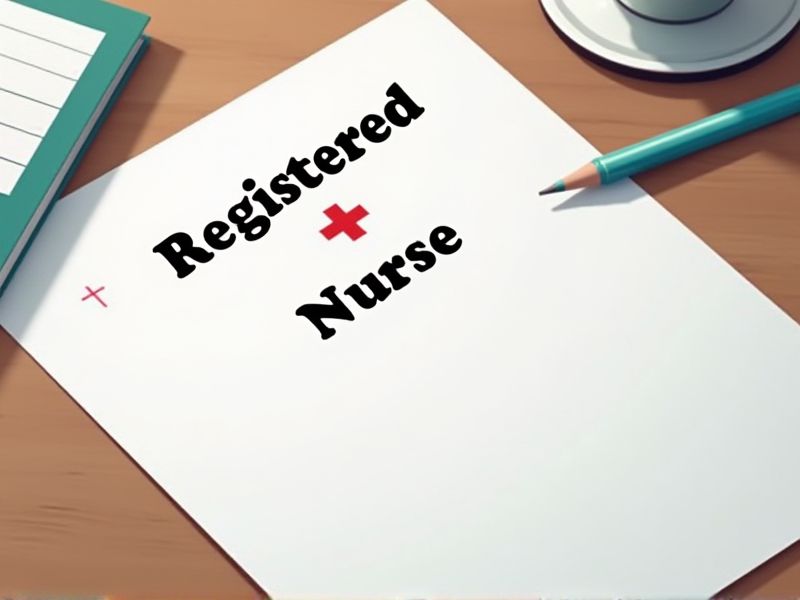
Navigating the healthcare system, registered nurses face diverse challenges that necessitate specialized knowledge. Acquiring certain certifications enhances their expertise, paving the way for more effective patient care. These credentials not only broaden clinical competencies but also boost career prospects and adaptability in an ever-evolving medical landscape. Essential certifications for registered nurses include:
Basic Life Support (BLS)
Registered Nurses equipped with Basic Life Support (BLS) skills can effectively manage life-threatening emergencies, reducing patient mortality rates. BLS training enhances their ability to recognize critical health changes in patients, facilitating timely interventions. Confident BLS competency among nurses ensures a safer healthcare environment, especially in acute and emergency settings. Regulatory bodies often mandate BLS certification, reinforcing its importance in maintaining high-standard patient care.
Advanced Cardiovascular Life Support (ACLS)
Advanced Cardiovascular Life Support (ACLS) equips registered nurses with essential skills to effectively manage cardiac events and emergencies, thereby improving patient survival rates. Nurses with ACLS certification are trained to accurately interpret electrocardiograms, which enables timely and appropriate interventions. They also possess knowledge of pharmacological treatments applicable during resuscitation, enhancing overall treatment efficacy. Having ACLS certification fosters confidence in clinical decision-making during life-threatening situations, which directly influences outcomes in critical care environments.
Pediatric Advanced Life Support (PALS)
Registered Nurses need Pediatric Advanced Life Support (PALS) to effectively respond to pediatric emergencies, reducing mortality rates among young patients. Without PALS training, nurses may lack the specific skills required to manage the unique anatomical and physiological traits of children in crisis situations. PALS certification equips nurses with the ability to perform critical interventions, such as advanced airway management and resuscitation. Hospitals and healthcare facilities often require PALS-certified staff to ensure preparedness and compliance with pediatric care standards.
Neonatal Resuscitation Program (NRP)
Neonatal Resuscitation Program (NRP) is needed for registered nurses because it equips them with vital skills to respond quickly to newborn respiratory distress, significantly reducing neonatal mortality rates. Participation in NRP training enhances a nurse's competency in recognizing and handling complications during childbirth, ensuring patient safety. Proper resuscitation techniques improve outcomes for infants born with birth asphyxia, fostering better long-term health. NRP certification is often a requirement in many healthcare settings, ensuring that nurses maintain a consistent standard of neonatal care.
Critical Care Registered Nurse (CCRN)
Critical Care Registered Nurse (CCRN) certification validates expertise in handling complex patient cases, making it a valuable asset for Registered Nurses working in intensive care units. This certification often leads to enhanced job opportunities and higher salaries, as hospitals prioritize highly qualified staff for critical patient care. CCRNs are trained to use advanced medical equipment and make quick, informed decisions, which can improve patient outcomes in life-threatening situations. Continuing education to maintain the CCRN credential encourages RNs to stay updated with the latest advancements in critical care practices.
Certified Medical-Surgical Registered Nurse (CMSRN)
Attaining the Certified Medical-Surgical Registered Nurse (CMSRN) credential enhances a registered nurse's expertise in the medical-surgical specialty, leading to improved patient care outcomes. Certification validates a nurse's knowledge, signaling competence to employers and colleagues, which can increase job opportunities and professional advancement. Nurses with a CMSRN credential often report higher confidence levels in their clinical skills, reducing the likelihood of errors. As healthcare systems increasingly emphasize evidence-based practices, having certified nurses aligns with organizational goals of quality assurance and accountability.
Certified Emergency Nurse (CEN)
The increasing complexity and unpredictability of emergency situations necessitate specialized knowledge, and CEN credentials validate a nurse's expertise in this area. Hospitals and healthcare facilities require certified personnel to improve patient outcomes, as CENs are well-trained to handle high-pressure scenarios effectively. CEN certification enhances a nurse's ability to rapidly assess, diagnose, and treat patients in critical conditions, aligning with evidence-based practice. Employers tend to prefer or mandate CEN-certified staff for heightened assurance of care standards in emergency settings.
Oncology Certified Nurse (OCN)
The complexity of cancer treatments necessitates specialized knowledge, which an OCN provides, enhancing patient outcomes. Achieving OCN status signifies a registered nurse's commitment to advancing expertise in oncology care and staying updated with the latest advancements. Hospitals and treatment centers benefit from having OCNs, as they bring evidence-based practices into clinical settings, potentially reducing complications. Patients gain a sense of trust and confidence in their care, knowing their nurse has specialized certification in oncology.
Psychiatric-Mental Health Nursing Certification (PMH-BC)
Psychiatric-Mental Health Nursing Certification (PMH-BC) enhances a nurse's credibility, signaling advanced competence in mental health care. Mental health issues often intersect with other medical conditions, requiring specialized knowledge to improve patient outcomes. The certification addresses growing demands in healthcare systems for mental health expertise due to increasing awareness and diagnosis rates. PMH-BC equips nurses with skills essential in managing complex psychiatric needs, ensuring comprehensive, quality care.
Certified Nurse Educator (CNE)
Certified Nurse Educators (CNEs) provide structured educational frameworks, enhancing the clinical competence of Registered Nurses (RNs). Their expertise in teaching strategies helps RNs stay updated with the latest healthcare practices and research. CNEs assist in integrating evidence-based practice into everyday nursing care, improving patient outcomes. By promoting lifelong learning, CNEs contribute to retaining skilled RNs within the healthcare system, addressing workforce shortages.
Summary
By obtaining certifications, you significantly enhance your professional credibility and open up a wider range of career opportunities. The added credentials can lead to increased job prospects and often result in higher salaries. You may also gain specialized skills that improve patient care quality, thereby positively impacting patient outcomes. Employers typically recognize and value certified nurses, which can lead to greater job satisfaction and advancement potential.
